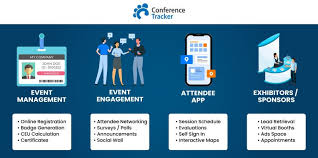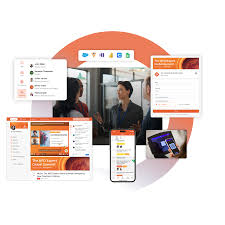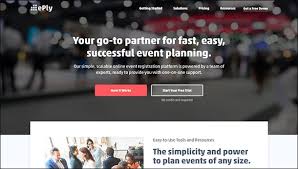Welcome to the World of Freeman Trade Shows
Freeman is a leading name in the trade show industry, known for its innovative solutions and exceptional services. With a rich history spanning decades, Freeman has established itself as a trusted partner for businesses looking to make a statement at trade shows and exhibitions.
What Sets Freeman Apart?
Freeman’s commitment to excellence sets it apart from the competition. From designing captivating booth layouts to providing state-of-the-art technology solutions, Freeman goes above and beyond to ensure that your trade show experience is seamless and successful.
Services Offered by Freeman
Freeman offers a wide range of services tailored to meet the unique needs of each client. These services include:
- Booth design and construction
- Logistics and shipping assistance
- Digital engagement solutions
- Data analytics and reporting
- On-site support and management
The Freeman Experience
When you choose Freeman for your trade show needs, you can expect nothing but the best. Their team of experts will work closely with you to bring your vision to life and create an unforgettable experience for attendees.
Contact Freeman Today!
If you’re ready to elevate your trade show presence and make a lasting impression, contact Freeman today. With their unparalleled expertise and dedication to customer satisfaction, you can trust that your event will be a resounding success.
Maximize Your Success: 6 Essential Tips for Excelling at Freeman Trade Shows
- Plan ahead and set clear objectives for attending the trade show.
- Design an eye-catching booth that represents your brand effectively.
- Engage with attendees by offering interactive experiences or product demonstrations.
- Collect contact information from leads for follow-up after the event.
- Network with other exhibitors to build relationships and explore potential collaborations.
- Follow up with leads promptly after the trade show to maximize opportunities.
Plan ahead and set clear objectives for attending the trade show.
Planning ahead and setting clear objectives are crucial steps when preparing to attend a Freeman trade show. By establishing specific goals and outlining a strategic plan, exhibitors can maximize their presence at the event and ensure a successful outcome. Clear objectives help focus efforts on key priorities, whether it’s generating leads, showcasing new products, or networking with industry professionals. With careful planning and well-defined goals in place, businesses can make the most of their participation in a Freeman trade show and achieve tangible results that align with their overall marketing objectives.
Design an eye-catching booth that represents your brand effectively.
Designing an eye-catching booth that effectively represents your brand is crucial for making a lasting impact at a Freeman trade show. Your booth serves as a visual representation of your company and should capture the essence of your brand identity in a compelling way. Incorporate elements such as colors, graphics, and signage that align with your brand image to attract attendees and create a memorable experience. By focusing on creating a visually appealing and cohesive booth design, you can enhance brand recognition and draw in potential customers at the trade show.
Engage with attendees by offering interactive experiences or product demonstrations.
To maximize your impact at a Freeman trade show, consider engaging with attendees through interactive experiences or product demonstrations. By offering hands-on activities or showcasing your products in action, you can capture the attention of visitors and create memorable experiences that leave a lasting impression. Interactive elements not only attract more foot traffic to your booth but also provide valuable opportunities to connect with potential customers on a deeper level, fostering meaningful interactions and driving interest in your brand or offerings.
Collect contact information from leads for follow-up after the event.
One crucial tip for maximizing your experience at a Freeman trade show is to diligently collect contact information from leads during the event. By gathering this valuable data, you can establish connections with potential clients and follow up with personalized messages post-event. This proactive approach not only enhances your networking efforts but also increases the likelihood of converting leads into loyal customers. Remember, effective follow-up is key to nurturing relationships and driving business growth in the long run.
Network with other exhibitors to build relationships and explore potential collaborations.
Networking with other exhibitors at Freeman trade shows is a valuable opportunity to establish meaningful relationships and discover potential collaborations. By engaging with fellow participants, you can exchange ideas, share insights, and create mutually beneficial partnerships that can enhance your trade show experience and open up new avenues for growth. Building strong connections within the trade show community can lead to long-lasting professional relationships and pave the way for future opportunities. Take advantage of the networking opportunities at Freeman trade shows to expand your network and unlock the full potential of your participation in these events.
Follow up with leads promptly after the trade show to maximize opportunities.
Following up with leads promptly after the trade show is crucial to maximizing opportunities and converting potential prospects into valuable clients. By reaching out in a timely manner, you demonstrate your commitment and interest in building a lasting relationship. Prompt follow-up also helps to keep your brand top-of-mind for attendees who may have visited multiple booths during the event. Take advantage of this opportunity to engage with leads while their experience at the trade show is still fresh in their minds, increasing the likelihood of successful conversions and fostering long-term connections.










